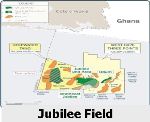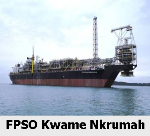Countries and Companies Stake Their Claims to Melting Arctic
- Details
- Created on Tuesday, 22 April 2014 11:15
Imagine the discovery of a new continent, with untapped resources, exotic ecosystems and new trade lanes. That’s how some people are describing the Arctic region. It’s warming faster than other parts of the globe, making ocean pathways and raw materials accessible for the first time in recorded human history. With the “last frontier” poised to become the next frontier market, competition is escalating among countries and companies seeking to stake their claims — without coming to blows or devastating a fragile environment.
The Situation
Companies are already drilling for oil and digging for minerals across the Arctic on an unprecedented scale, and they’re expected to spend $100 billionthere over the next decade, according to Lloyd’s of London, the world’s oldest insurance market. Ice now covers half as much of the Arctic Ocean in summer as it did in 1999. That’s increasing access to a region that’s thought to hold about a quarter of the world’s undiscovered oil and natural gas, as well as gold, silver, copper, zinc, diamonds and fish. It’s also openedshortcuts for trade: The Northern Sea Route is 40 percent shorter from northern Europe to China than a trip through the Suez Canal. The countries with territory in the region — the U.S., Canada, Greenland, Iceland, Norway, Finland, Sweden and Russia — are developing plans to build infrastructure and bolster their militaries by adding surveillance systems, training troops in cold weather and strengthening ships to sail through ice.
The Background
Drilling, mining and fishing have gone on in the Arctic for decades — the debate about exploring for oil in Alaska’s Arctic National Wildlife Refuge dates back to the late 1970s and surfaced in the 2008 U.S. presidential campaign. But large-scale development looked far-fetched until recently. Predictions that the melting ice would make the Arctic a geopolitical hotspot, with competition for resources sparking armed conflict, haven’t materialized. Governments are cooperating through the Arctic Council, a forum created in 1996. Unlike in many other emerging markets, the Arctic countries (except Russia) have developed economies and stable legal systems. Still, neighbors dispute their maritime borders, and countries are trying to extend claims all the way to the North Pole. For the Arctic’s roughly 4 million people — many of them members of indigenous tribes that have inhabited the region for millennia — the rapid changes pose a challenge to balance the income from drilling and mining against the risks of environmental degradation and disruption to traditional ways of life.
Opinion from
Environmentalists and others urging a go-slow approach note that early forays into the Arctic, mostly by big oil companies, have been fraught with mishaps and cost overruns. Shell spent more than $5 billion on drilling off Alaska that’s now on hold. Statoildelayed a decision on whether to move forward with a project because of higher costs, taxes and uncertainty about resource estimates. The Norwegian government’s plan to permit drilling closer to the Arctic ice cap has run into environmental opposition. Advocacy groups want to protect the Arctic from catastrophes such as the 1989 Exxon Valdez oil spill. Such opposition led some miners to pull support for a copper project in Alaska that the U.S. Environmental Protection Agency said would harm salmon habitat. Last year Russia arrested Greenpeace activists who protested at an offshore oil platform. Companies are forging ahead anyway, including plans by the largest U.S. oil company, ExxonMobil, to drill an Arctic well this year with a noteworthy partner: Russia’s state-owned giant, Rosneft.
source: bloomberg








